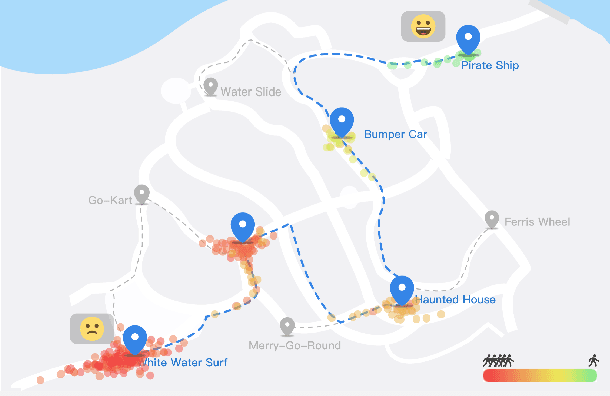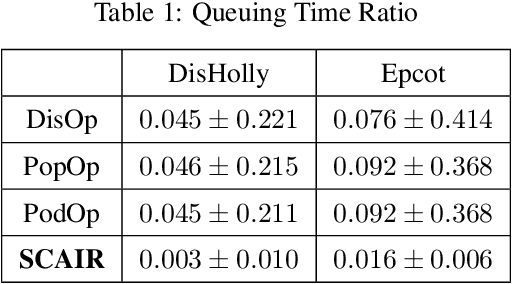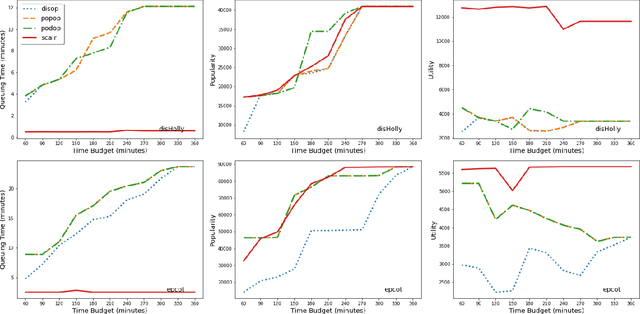Crowd-aware itinerary recommendation: a game-theoretic approach to optimize social welfare
Paper and Code
Oct 06, 2019


The demand for Itinerary Planning grows rapidly in recent years as the economy and standard of living are improving globally. Nonetheless, itinerary recommendation remains a complex and difficult task, especially for one that is queuing time- and crowd-aware. This difficulty is due to the large amount of parameters involved, i.e., attraction popularity, queuing time, walking time, operating hours, etc. Many recent or existing works adopt a data-driven approach and propose solutions with single-person perspectives, but do not address real-world problems as a result of natural crowd behavior, such as the Selfish Routing problem, which describes the consequence of ineffective network and sub-optimal social outcome by leaving agents to decide freely. In this work, we propose the Strategic and Crowd-Aware Itinerary Recommendation (SCAIR) algorithm which takes a game-theoretic approach to address the Selfish Routing problem and optimize social welfare in real-world situations. To address the NP-hardness of the social welfare optimization problem, we further propose a Markov Decision Process (MDP) approach which enables our simulations to be carried out in poly-time. We then use real-world data to evaluate the proposed algorithm, with benchmarks of two intuitive strategies commonly adopted in real life, and a recent algorithm published in the literature. Our simulation results highlight the existence of the Selfish Routing problem and show that SCAIR outperforms the benchmarks in handling this issue with real-world data.
 Add to Chrome
Add to Chrome Add to Firefox
Add to Firefox Add to Edge
Add to Edge